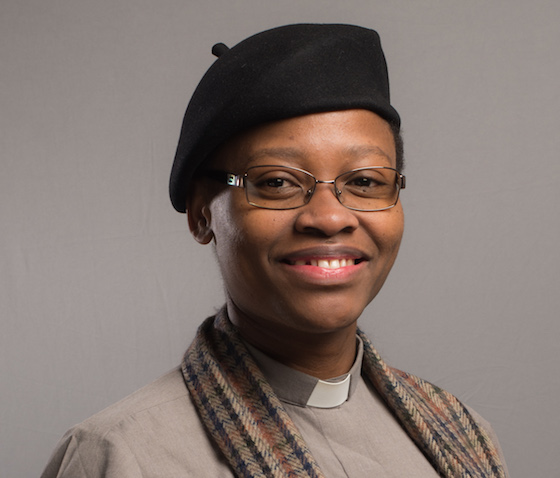There are questions for which Ellah Kandi has no answers.
She has no idea what became of her brother, who disappeared almost two decades ago. “I don’t know why he went, or if he’s alive or dead,” she says. “But he was running for his life.”

She doesn’t know why it proved so simple to slip through customs when she decided to flee her homeland for the UK. She doesn’t know why it took the authorities so many years to deal with her plea for asylum. And she doesn’t know why, after several years of pledging to deport her, the powers-that-be had a sudden change of heart and allowed her stay in the UK.
Perhaps she’ll never know the answers to all these questions, but Ellah isn’t one to fixate on them. She has plenty of other things on her mind.
Ellah Kandi is studying for a degree in social work at De Montfort University in Leicester. She’s a Pentecostal chaplain and the leader of the DMU gospel choir. She’s a volunteer, a businesswoman, and a food writer who has published a book of recipes. And today, she’ll try to cram all this into an address to the Leicestershire Police Women’s Inclusive Network at a conference at De Montfort University.
The talk will be about her life, and her experiences. And she’ll be in remarkable company on the day. Other speakers include Julie Nicholson, whose daughter was killed in the 7/7 terror attacks, discussing loss, grief and faith; Amy Morgan, who lost her son in a knife attack and is campaigning to change the law, and Jo Ashworth, the head of forensic services for Leicestershire Police.
Ellah was a schoolgirl when her brother went missing from their Harare home.
“My father was distraught. I’d never seen him cry, apart from at my mother’s funeral. We were all devastated.
“Zimbabwe was full of unrest and tension back then. It was like a ticking bomb. I wasn’t going to wait to for it to go off. I thought ‘I have got to leave’.”
She fled to England in October 2000, and claimed asylum. “I was moved all over the place – Brighton, Bournemouth, I spent some time in a jail, Gatwick detention centre and more at Oakington detention centre, then got sent to Luton. I didn’t know what was going on.”
Finally, she was sent to Leicester, the city that has changed her life. “At first I was in the International Hotel in Rutland Street. There were people there that committed suicide. If I hadn’t had my resolve or that spirit in me, maybe I would have too. I was there all by myself. No family, no work. I couldn’t access medical treatment.”
The turning point came when she joined Emmanuel Apostolic Church, on Saffron Lane, and found a sense of family among the congregation and the choir. But it wasn’t until 2012 that she heard she would be allowed to stay in the UK.
“I wanted to bury everything that had happened before, I realised I had been suppressing my emotions and I needed to deal with it. It all became so fresh again.
“Someone asked me if I would go back to Zimbabwe. To be honest, I’d be afraid. Anyone who left got called a traitor.
“But my dream as a child was to open an orphanage. Maybe one day, that will happen. And maybe,” she adds with a smile, “it will be in Zimbabwe.”
Your Journey, organised by Leicestershire Police’s Women’s Inclusive Network, takes place today from 8.30am to 4pm at The Venue@DMU.
Posted on Thursday 22 June 2017